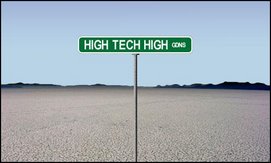DUE THR 3/22 - Prep for Seminar
Prepare for Socratic Seminar by writing at least one-half page on at least one of the following prompts, or create your own prompt. If you create your own prompt remember it must be an interpretive question, meaning there is more than one possible answer (but you only have to provide one answer in your response).
1) In your opinion, is it ever right to harm somebody? Why or why not? What would Socrates and/or Thrasymachus say in response to your answer?
I think that you do have the right to harm someone. Say that someone did something really bad to you that inflicted pain and you want a way to get back at them. I think that you have the right to hit them back. They deserve it, I really think so. Thats what I would do. But getting back to the point. You would want to hurt them back to show that you can defend yourself. Its not about just hurting them, its about showing that you not afraid of them.
You should hit them back, but if they didn't do anything that bad like just steal something from you, ya I would take something of theres of the most value. They would never see it again. But thats just me, not to be mean, but to give them what it is like to have something valuable to them.




